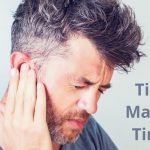Hearing loss is one of the most common medical conditions, affecting an estimated 466 million people worldwide, 34 million of whom are children. There are many possible causes of hearing loss in both children and adults.
Pediatric Hearing Loss
It is very rare that children are born with detectable hearing loss in one or both ears, about 2 or 3 out of 1,000. This is called congenital hearing loss. When hearing loss occurs any time after birth, it is referred to as acquired hearing loss. It often occurs due to an illness or injury. Some common causes are:
- Ear infections (these are common in children)
- Ototoxic—having a toxic effect on the ear or its nerve supply—over-the-counter and prescription drugs
- Meningitis
- Measles
- Encephalitis
- Head injury
- Loud noises, like explosions or live concerts
Types of Hearing Loss
There are four types of hearing loss: conductive, sensorineural, mixed, and auditory neuropathy.
- Conductive hearing loss occurs when there is damage or a blockage in the outer ear, middle ear, or both. As a result, sound cannot be conducted through the ear canal to the eardrum adequately, or from the from the eardrum via the ossicles of the middle ear to the inner ear. Common causes are a buildup of earwax, a perforated eardrum, a buildup of fluid (often from cold or flu and refer to as ‘glue ear’), abnormal bone growth involving the ossicles, and repeated ear infections and allergies. Often, medical interventions and technologies, such as a conventional or bone-conduction hearing aid or a surgically-implanted osseointegrated device, are used to treat conductive hearing loss.
- Sensorineural hearing loss occurs when there is damage or malfunction of the cochlea’s hair cells. Some causes include, but are not limited to: exposure to loud noise, aging, virus or disease, heredity, and autoimmune inner ear disease. This is the most common type of hearing loss and assistive technologies can help reduce its effects.
- Mixed hearing loss occurs when both conductive and sensorineural hearing losses are present. While the sensorineural component of the hearing loss is permanent, the conductive component may be permanent or temporary.
- Auditory Neuropathy happens when there is a problem with the auditory nerve transmitting the signal from the cochlea to the brain. The cause is often associated with lack of oxygen or jaundice at birth, or other neurological conditions. Assistive hearing technologies can often help reduce the effects of auditory neuropathy.
Preventative Measures
Loud noise can be harmful if you are exposed to it for an extended period of time or if it is a very loud, quick noise. This is referred to as Noise-induced Hearing Loss (NIHL). There are many times throughout a given day that you might come in contact with harmful noises. It is best to be prepared whenever possible for such instances.
Some of the following work and recreational environments could be hazardous to your hearing health: sirens from fire trucks, ambulances, or police vehicles, construction sites, dance clubs, musicians, motorcycles, and more. These are all contributors to acquired hearing loss.
It is imperative to your hearing health that in these situations you: turn down the volume; walk away; and protect your ears. You can limit the amount of time you are exposed to loud noise by removing yourself from the source whenever appropriate. If you work in a loud environment, wear protective ear covering (earplugs, ear muffs, or work-regulated hearing protection); these should be provided by your employer. Turn down the volume on your media devices like televisions, radios, and headphones, especially ear buds. Lastly, avoid medications that are harmful to your hearing whenever possible. If you are unsure what medicines are toxic to your hearing health, check with your doctor or find a comprehensive list online provided by the American Tinnitus Association.
Seeking Treatment for Hearing Loss
The causes for acquired hearing loss are many, yet the preventative measures that can be taken are much fewer. Unfortunately, heredity and aging are factors we cannot control, which is why one should be diligent about hearing health in the areas of which we do have control. Among these, get your hearing checked with your doctor or audiologist at the first sign that you may have a hearing loss. They can diagnose your hearing health after a hearing exam and will have information about next steps to better serve you moving forward. Should you require a device to treat your hearing loss, be sure to shop our selection of affordable hearing aids.






